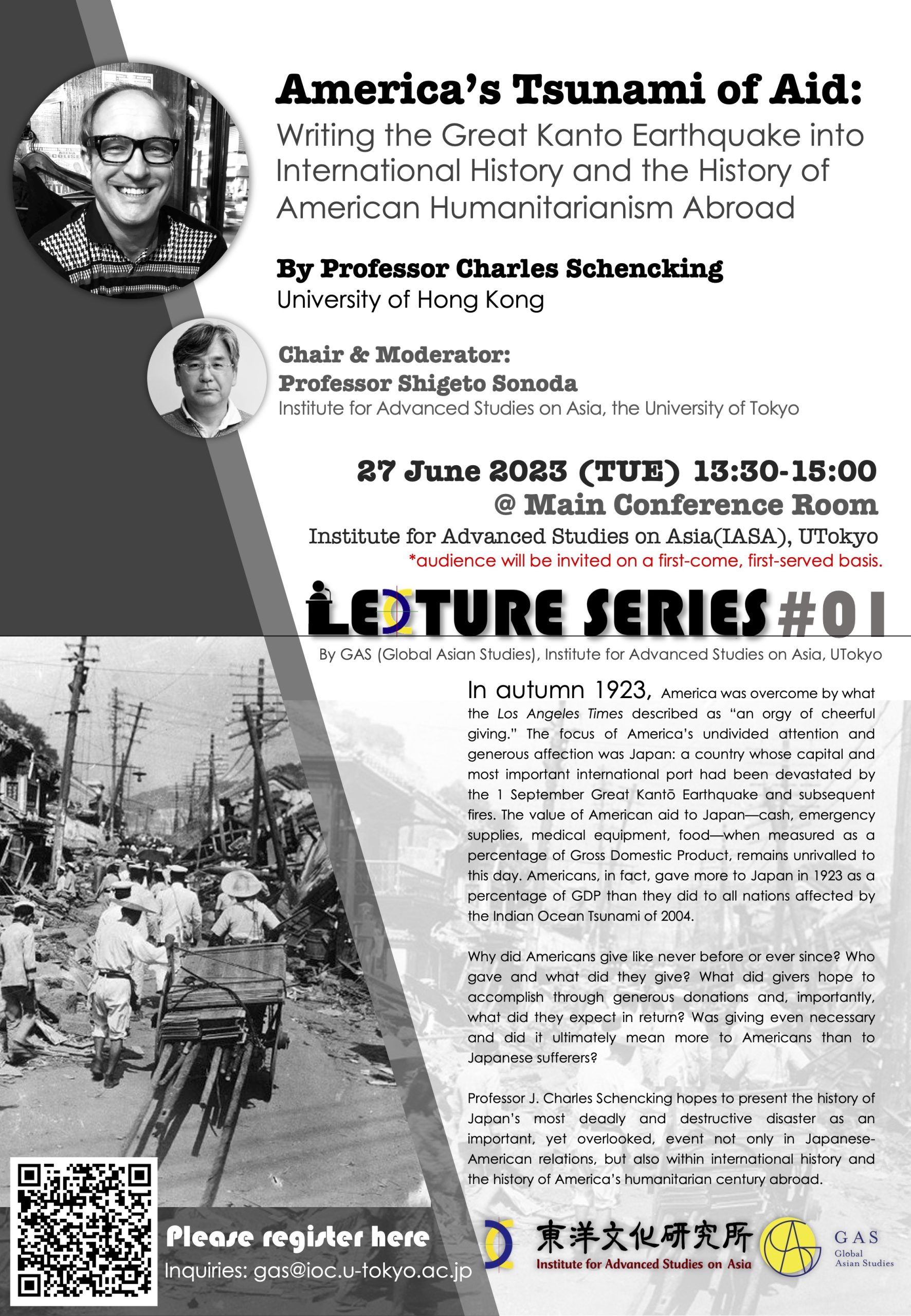- GAS Initiative
GAS Lecture Series 1
America’s Tsunami of Aid: Writing the Great Kantō Earthquake into International History and the History of American Humanitarianism Abroad
- Finished
- Report
| Date and Time | June 27 (Tue) 2023, 13:30-15:00 PM (JST) |
|---|---|
| Venue | Main Conference Room (3F), Institute for Advanced Studies on Asia, University of Tokyo |
| Title | America’s Tsunami of Aid: Writing the Great Kantō Earthquake into International History and the History of American Humanitarianism Abroad |
| Speaker | J. Charles Schencking, Professor, University of Hong Kong |
| Chair | Shigeto Sonoda, Professor, Institute for Advanced Studies on Asia, University of Tokyo |
| Language | English |
This event will be held in-person only and registration for participation is required. Given the limited capacity of the venue, we will invite the audience on a first-come, first-serve basis. Please register here: https://forms.gle/MYugEA6Pub5wfC8k6
In autumn 1923, America was overcome by what the Los Angeles Times described as “an orgy of cheerful giving.” The focus of America’s undivided attention and generous affection was Japan: a country whose capital and most important international port had been devastated by the 1 September Great Kantō Earthquake and subsequent fires. The value of American aid to Japan—cash, emergency supplies, medical equipment, food—when measured as a percentage of Gross Domestic Product, remains unrivalled to this day. Americans, in fact, gave more to Japan in 1923 as a percentage of GDP than they did to all nations affected by the Indian Ocean Tsunami of 2004.
Why did Americans give like never before or ever since? Who gave and what did they give? What did givers hope to accomplish through generous donations and, importantly, what did they expect in return? Was giving even necessary and did it ultimately mean more to Americans than to Japanese sufferers?
In this seminar, Professor J. Charles Schencking (University of Hong Kong and former visiting researcher at the Institute for Advanced Studies on Asia – 東洋文化研究所), explores these questions. In doing so, he hopes to present the history of Japan’s most deadly and destructive disaster as an important, yet overlooked, event not only in Japanese-American relations, but also within international history and the history of America’s humanitarian century abroad.
Event Report
 |
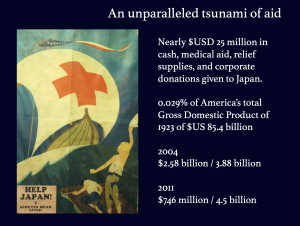 |
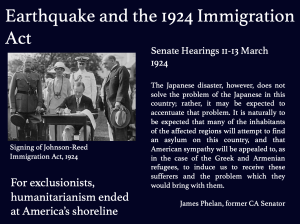 |
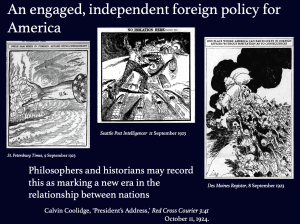 |
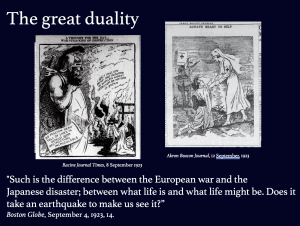 |
 |
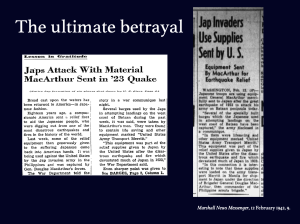 |
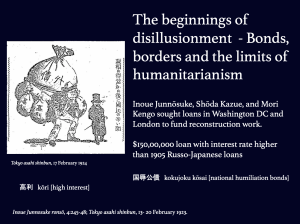 |
 |
| Organizer: | GAS Initiative |
|---|---|
| Co-organizer: | Institute for Advanced Studies on Asia (IASA) |
| Contact: | gas[at]ioc.u-tokyo.ac.jp |



